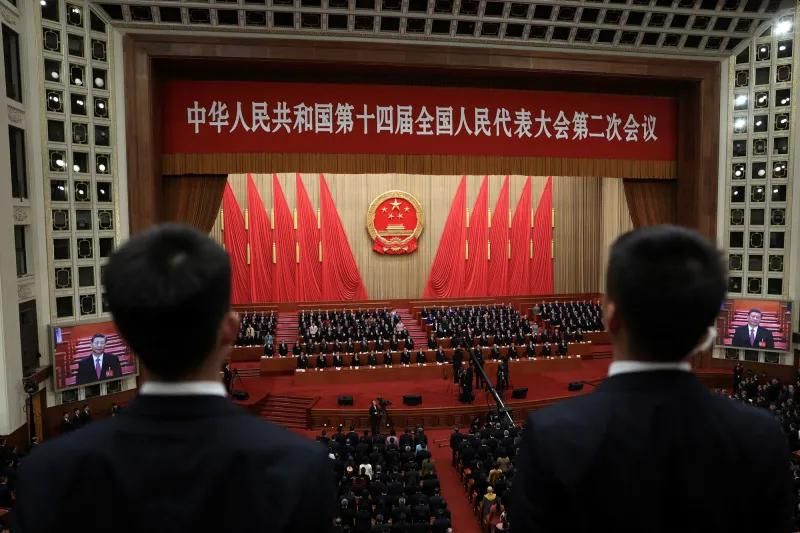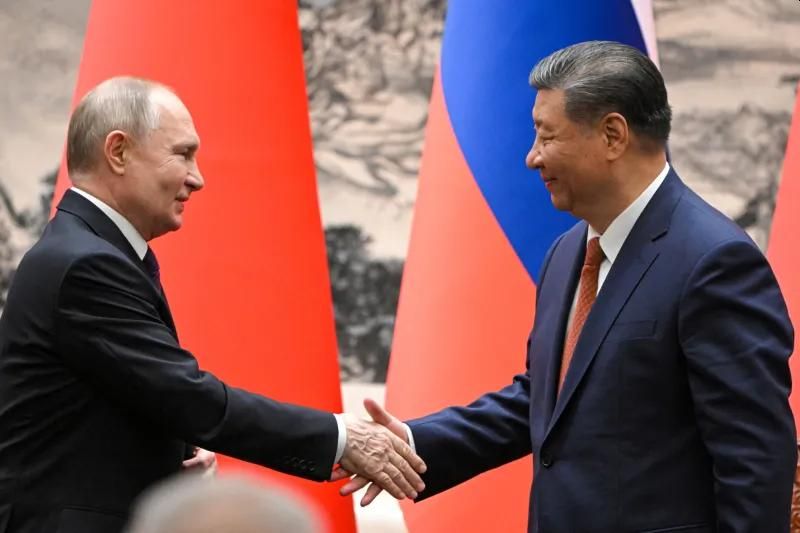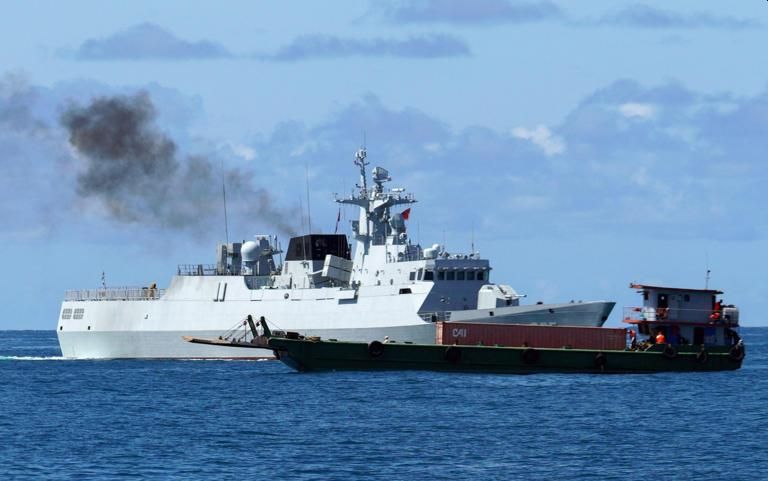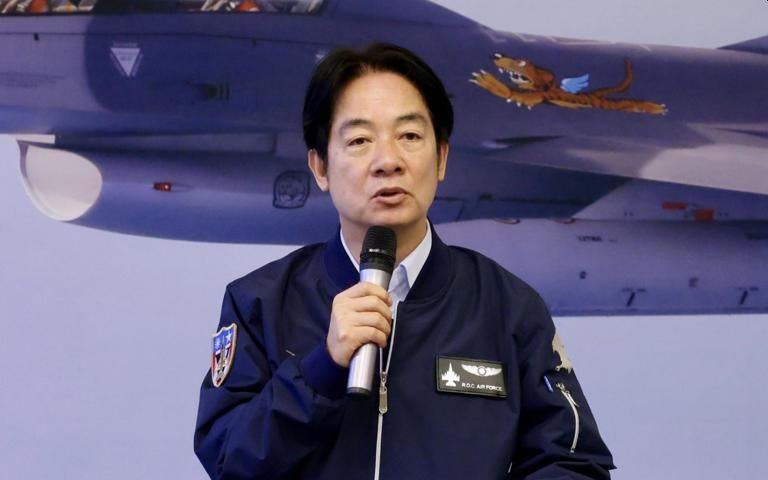By Eric Vandenbroeck and co-workers
The New Cold War
Many Chinese
observers seem to be pessimistic or, at best, cautiously optimistic about that question.
Their views on the prospect and nature of Sino-European relations generally
fall into four categories, ranging from predictions of a new cold war,
forecasts of a vicious spiral of rising confrontation, expectations of
strategic competition, and hopes for limited competition and cooperation.
Regarding ways of avoiding a cold war and maintaining peace, the most
often-heard recommendations include deepening economic interdependence,
maintaining the balance of power through alliances and hedging, managing
the domestic politics of the major powers, and nurturing mutual respect while
exercising self-restraint. However, many of these ideas are based on
assumptions of zero-sum games and power politics, following an individualist
approach.
Adopting a systemic
and relational perspective, and assuming that multilateralism matters, this
chapter argues that a cold war between Europe and China is not inevitable
as long as the two sides commit to “inclusive multilateralism.” While recognizing
the fundamental significance of rules in multilateral cooperation,
inclusive multilateralism emphasizes inclusiveness on several crucial fronts:
plural and pluralistic ideas, norms, and identities and the role of consensus
in addressing and accommodating the salient plurality, diversity, and
complexity of world politics. Inclusive multilateralism is a consensus-seeking
practice that coordinates relations among three or more states to address
common problems and promote global governance. Supported by the three pillars
of networking, openness, and developmental security, inclusive
multilateralism can function as a social security net, enhancing the resilience
of international society to enable it to resist and contain strategic
competition and to recover from tensions and conflicts more readily. The
concept of inclusive multilateralism has been inspired by East Asian regional
cooperation in the post–Cold War era. Inclusive multilateralism enabled
East Asia to withstand challenges at the end of the Cold War, resolve two
financial crises, and manage regional power competition. The commitment of
China and Europe to inclusive multilateralism is crucial in helping
prevent a new cold war and enhancing the resilience of the international order
of peace and development.
The closing session of the National People’s Congress
at the Great Hall of the People in Beijing, March 2024

The CCP is now
underwriting proxy wars in multiple theaters to undermine the security and
credibility of the United States and its partners. In short, global events
driven by Xi and his “axis of chaos”, Russia, Iran (and its terrorist proxies),
North Korea, and Venezuela, are simply overwhelming Biden’s China policy. As
the Biden team frets about admitting that the United States is now in a cold
war, Beijing is leading it into the foothills of a hot one.
What the United States Should Be Doing
What Washington
should be doing to address the threat, which has quickly metastasized from a
“pacing challenge,” as the Biden team politely calls it, into something much
scarier, as the CCP is now underwriting proxy wars in multiple theaters to
undermine the security and credibility of United States and its partners. In
short, global events driven by Xi and his “axis of chaos”, Russia, Iran (and
its terrorist proxies), North Korea, and Venezuela, are simply overwhelming
Biden’s China policy. As the Biden team frets about admitting that the United
States is now in a cold war, Beijing is leading it into the foothills of a hot
one.
In October, at the
20th National Party Congress of the Chinese Communist Party (CCP), General Secretary Xi Jinping set himself up for another decade as
China’s most powerful leader since Mao Zedong replaced his most economically literate
Politburo colleagues with a phalanx of loyalists, and enshrined the
Stalinist-Maoist concept of “struggle” as a guiding principle in the Party
Charter. The effect was to turn the page on “reform and opening,” the term the
CCP uses to describe the economic liberalization that began in the late 1970s
and led to the explosive growth of the Chinese economy in the past four
decades.
President Xi seems laser-focused on prevailing in a global struggle in
which “capitalism will inevitably perish and socialism will inevitably
triumph,” as he put it in a quintessential secret speech shortly after rising
to power. Xi’s internal speeches, edicts, and actions show that he is pursuing
global, not just regional, initiatives to discredit and dissolve Western
alliances, co-opting international bodies to advance illiberal and autocratic
aims, and even undermining the centuries-old Westphalian system of sovereign
nation-states. These policies first took shape during the Obama administration,
when Washington was at pains to engage and reassure Beijing.
In another statement,
Xi said, “Our struggle and contest with Western countries is irreconcilable, so
it will inevitably be long, complicated, and sometimes even very sharp.” Xi has
clearly driven the contest into just such a “sharp” phase. In April, Secretary
of State Antony Blinken stated that China is “overwhelmingly the number one
supplier” of Russia’s war machine and that “Russia would struggle to sustain
its assault on Ukraine without China’s support.” Beijing is following a similar
playbook in the Middle East, making itself the primary consumer of sanctioned
Iranian oil and providing strong diplomatic and propaganda support for Iran and
some of its terrorist proxies in the wake of Hamas’s October 7 rampage in
southern Israel.
Russian President Vladimir Putin shakes hands with
Chinese President Xi Jinping during a meeting in Beijing, May 2024

If Washington wants
to achieve victory without war in competition with a capable, belligerent
Leninist regime, history tells us that it should adapt and apply the best
lessons of the Cold War, from the clear-eyed theoretical framing that Kennan
provided in the late 1940s to the resolute yet flexible policies that Reagan
put into practice in the 1980s, policies that steered the Cold War to a
peaceful conclusion that favored free nations.
Nine successive U.S.
presidents, from Harry Truman to George H. W. Bush, chose to employ Cold War
strategies, albeit with varying approaches. The Biden administration is
repeating the mistake of the 1970s.
China has repeatedly
reneged on its various tactical concessions or returned accommodation by others
with eventual hostility or more expansive claims.” Why then believe China’s
recent and minor tactical concessions will follow a different pattern?
Victims Or Perpetrators?
Dismissing the goals,
resourcefulness, and initiative of dictators is all too common in
Washington.
Beijing’s formidable
ambitions and capabilities and how threatening they are to U.S. interests (as
does the Biden administration’s written strategies). It also defends the
growing list of steps the Biden administration has taken to strengthen Pacific
alliances and restrict Beijing’s access to U.S. markets and technology. U.S.
policy toward China will need bipartisan foundations to succeed.
China has the
world’s second-largest GDP today, and so did the Soviet Union for most of the
Cold War. In the 1970s, by the CIA’s estimate, the Soviet economy reached 57
percent of U.S. GNP, a share that is not far from the 65 percent of U.S. GDP that
the Chinese economy is estimated to amount to today. The Chinese economy, like
the Soviet economy, is almost certainly smaller than estimated, and it is going
through a crisis reminiscent of the Soviet economic travails that became
obvious by the early 1980s. We are the first to admit that reducing the West’s
economic dependence on China will be much tougher than reducing its dependence
on the Soviet Union was, given Beijing’s technological prowess. By the same
token, the costs of failing to disentangle would also be far greater.
The United States
should do nothing to strengthen the CCP’s power and confidence, which are
sources of its aggression.
The United States and
its allies have failed to deter their enemies over the past three years, in
Afghanistan, Ukraine, and the Middle East, and what it says about the
shortcomings of the administration’s foreign policy in general, including
toward China. In March 2022, Biden drew a redline for Xi, warning him not to
provide “material support” for Putin’s war in Europe. And yet Xi went on to do
just that, with only token pushback from Washington, a failure that will
probably embolden Beijing to undertake far more dangerous steps, including
about Taiwan.
For example the
Chinese People’s Liberation Army last week launched a series of
military drills around the island of Taiwan. Beijing’s escalation was presumably undertaken to
overlap with the inauguration of Lai Ching-te as president earlier this month: Taiwanese voters
struck a blow to Beijing at the start of this year, by electing a candidate who
campaigned on what many viewed as a China skeptic. platform.
By our reckoning,
there is a lot of spiraling going on, in Europe, in the Middle East, in the South China Sea, and Beijing is at the center
of it. Had the Biden administration adopted at the outset a stronger and more
resolute policy toward U.S. adversaries, including, crucially, a major increase
in defense spending, it may well have prevented the darkening geopolitical
landscape that developed over the past three years. The Biden administration,
inexplicably and inexcusably, is, in inflation-adjusted terms, cutting U.S.
defense spending, even as it has initiated trillions of dollars in new spending
on pandemic relief and progressive domestic priorities and is attempting to
spend hundreds of billions of dollars more on college debt relief.
A Chinese attack on Taiwan is more likely to involve a
naval blockade than a full-scale invasion

Lai makes Beijing
nervous, hence the military exercises. On Monday, American lawmakers vowed to
bolster Taiwanese deterrence against an incursion by China. At a news
conference in Taipei US Representative Michael McCaul, chairman of the House
Foreign Affairs Committee, stated that the military exercises were an attempt
to “punish democracy”. Beijing has described them as “strong punishment” for
Taiwan’s “separatist acts”.
Despite recently striking a conciliatory tone, Taiwan
president Lai Ching-te clearly makes Beijing nervous

McCaul used the opportunity
to urge Congress to speed up shipments of defensive weapons to the island, but
the fear must now be that the current strategy is becoming out-of-date.
For most of 2022 and 2023, the underlying assumption was that a Chinese attack
on Taiwan were it to occur, would involve a full-scale invasion, not unlike the
D-Day landings.
In such a scenario,
the US and its allies would face a grim choice: either allow the Chinese to
starve the Taiwanese into submission or send in the Western navies to break up
the blockade. This would be no easy task considering that the Western navies have
been unable to reopen the Red Sea against a far inferior force, but there is
every reason to think that they would feel the need to act.
Such action could
spark a direct military confrontation with China, which would be economically
catastrophic. Presumably it would lead to the sorts of sanctions and counter
sanctions that we saw placed on Russia after they invaded Ukraine. One recent
study puts the cost at up to 10pc of global GDP, but even this likely
understates the true damage.
Western economic
supply chains are reliant on China in ways that no one person truly
understands. China makes important intermediary and capital goods that are
fundamental for Western manufacturers to function. Without access to these
inputs, the Western economies would grind to a halt. The result would be severe
shortages and uncontrollable inflation, unlike anything that we have seen in
living memory. This would potentially be compounded by the Chinese dumping
their Western bond and currency reserves.
To give some sense of
this, consider that Chinese holdings of American bonds and reserves are large
enough to represent a 40pc increase in the number of US dollars circulating in
the daily foreign exchange market. These markets are used to very incremental
changes in dollar liquidity, a shock dump of dollars making up 40pc of the
market would send the currency into a tailspin. Hyperinflation would be a very
real possibility as a result.
When Russia invaded
Ukraine in February 2022, the economic effects were enormous – most notably
through the rise in energy costs and the blowout in budget deficits in Western
countries. But the economic threat from that war was never truly existential. The
economic threat of a war between the US and its allies and the Chinese would
be. Such a war could truly throw Western economies into severe turmoil.
These economies,
already stagnant and overloaded with debt, could easily crumble in the face of
such a threat. Social tensions in many Western economies are already riding
high – especially around the issue of migration – and history gives us ample
evidence that fractious societies can fall into chaos if hit with a large
enough economic shock.
Western leaders might
therefore want to consider diplomatic management of the situation in the South
China Sea very carefully. It is in everyone’s interest to ensure that the
situation does not spiral further out of control.
The Sources Of Chinese Conduct
One of the paradoxes
of Marxist-Leninist dictatorships is that the more comfortable they are, the
more aggressive they become.
It works the other
way, too. The historian Richard Pipes, who served on the National Security
Council during the Reagan administration and played a key role in fashioning
its successful Soviet policy, held as a “central thesis” that “the Soviet
regime will become less aggressive only as a result of failures and worries
about its ability to govern effectively and not from a sense of enhanced
security and confidence.” When he wrote those words, in his 1984 book, Survival
Is Not Enough, he was predicting the internal forces that would ultimately
unravel the Soviet Communist Party. Chen Weiss and Steinberg even allude to
this dynamic, perhaps unwittingly, when they say that China’s current “economic
headwinds,” combined with policies the United States is using to widen its
economic and technological lead over China, “have created a window” for more
stable bilateral relations.
It stands to reason,
and Cold War history is replete with examples, that the weaker a communist
dictatorship becomes, the more manageable a threat it becomes for Washington.
Hence, the United States should first do nothing to strengthen the CCP’s power
and confidence, which are sources of its aggression. As we made clear in our
article, this isn’t the same as pursuing “regime change.” It is merely
realistic and strategic thinking. Our view is the same as Pipes’s: “This is a
call not for subverting Communism but for letting Communism subvert itself.”
Washington shouldn’t be giving Beijing time—which the Biden administration’s
détente-like policy does, to worm its way out of the economic conundrum it
created for itself. Chinese leaders have long believed that the United States
is trying to suppress Chinese economic growth anyway (even though it did
precisely the opposite for more than three decades).
Washington shouldn’t
be afraid to pursue peaceful victory in this competition. Beijing isn’t afraid
of pursuing victory by any means necessary. In a major address in 2020 about
China’s 1950 decision to fight the United States on the Korean Peninsula, Xi said,
“War must be fought to deter aggression, force must be met with force, and
victory is the best way to win peace and respect.” As we wrote in our original
article: “China isn’t aiming for a stalemate. Neither should America.”
For updates click hompage here